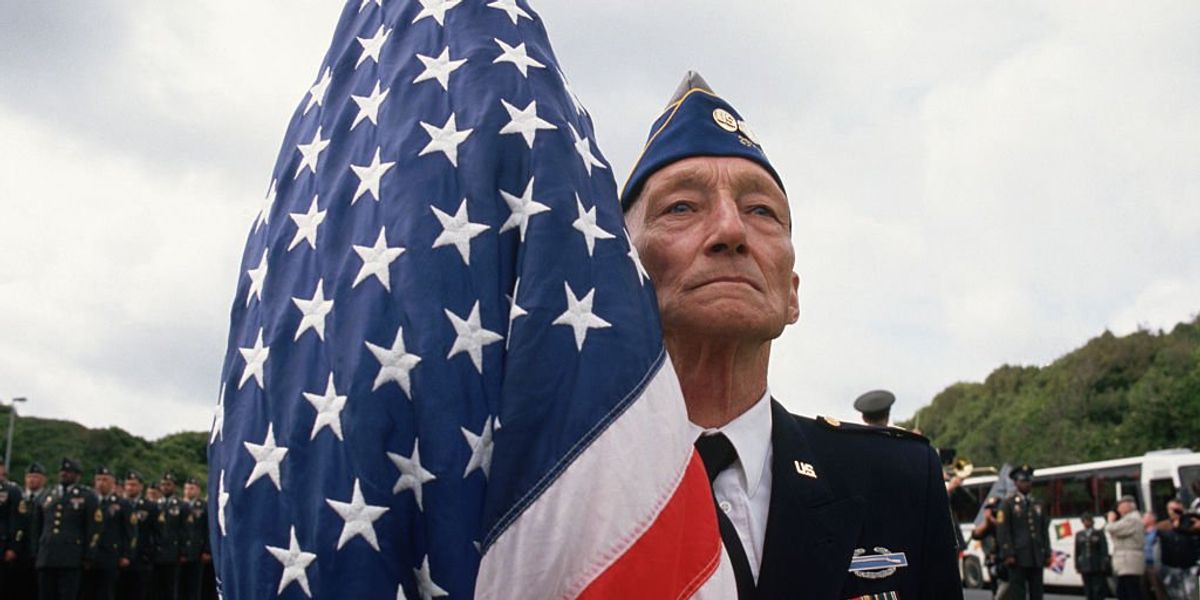The sandy beaches of Normandy, France, were a hellscape 80 years ago today. The ocean had literally turned red from the blood of Allied soldiers being torn to pieces by defenders of the Wehrmacht. But American soldiers clawed their way forward, paying for every inch of ground.
On D-Day, these young men assaulted Adolf Hitler’s Atlantic Wall with devotion to their country and no concern for themselves. Thousands gave their lives to liberate Western Europe from one of the greatest evils the world has ever seen, and the bodies of those brave men still rest in France today.
By 2021, four times as many veterans of the post-9/11 wars had been lost to suicide as to the wars themselves.
The veterans who returned home after World War II rightly received a hero’s welcome. Beyond that immediate adulation, nearly an entire generation of American men had a common bond and unspoken friendship on which they could rely.
Implicit support systems for veterans organically sprang up and complemented existing organizations such as the Veterans of Foreign Wars, American Legion, and new efforts like the G.I. Bill of 1944. It wasn’t easy readjusting to civilian life — some never could — but society worked to ensure as many veterans as possible could move on from the trauma of war.
The same could not be said of those who fought in Vietnam two decades later.
They were greeted by hostile crowds full of misdirected anger. Our veterans were jeered at and spat upon. There was no nationwide culture of appreciation for their sacrifice nor the same institutions to support these veterans as they were reacclimating to civilian life.
Drug use and suicides became widespread among Vietnam veterans as they struggled to make sense of the horrors they witnessed and reconcile why so many of their countrymen were so ungrateful.
The post-9/11 wars in Afghanistan and Iraq shed new light on the phenomenon of post-traumatic stress disorder, particularly as veterans returning home from the Middle East were increasingly found to be suicidal and struggling to adjust to life stateside.
But our institutions were slow to recognize the problem and even slower to act. A 2013 Department of Veteran Affairs study found that our servicemen and women were taking their own lives at a rate of 22 veterans — not per year, but every single day. In a little more than an hour, another American who sacrificed for his country was dead by his own hand.
While the deaths overseas in Afghanistan and Iraq were mournful, they were but a fraction of the waves of suicides that those conflicts induced once soldiers, sailors, airmen, and Marines arrived back home. By 2021, four times as many veterans of the post-9/11 wars had been lost to suicide as to the wars themselves.
America went from tending to her veterans to ignoring them as they slipped away into opioid addiction, isolation, and bankruptcy. This happened because the institutions, both public and private, that supported them became eroded over time.
In fairness, many phenomenal private charities that grew up in recent years are working hard to reverse this trend by thoroughly taking care of as many veterans as possible. They are truly saving lives.
But our public institutions leave much to be desired, especially in addressing veterans’ financial challenges, long wait times for medical treatment, and insufficient mental health support. It’s long past time that we, as a society, rectify this injustice.
On the 70th anniversary of D-Day, I spoke in Sainte-Mère-Église alongside Dr. Claude Gatignol, a former French Parliament member, near the church where John Steele, portrayed in “The Longest Day,” witnessed the horrors below.
As the national anthems of the Allied countries played, the crowd sang America’s “Star-Spangled Banner” with fervent belief and respect. When the French national anthem followed, the entire square erupted in a loud, unified voice. Tears of pride streamed down our cheeks as we nodded to each other, knowing this was how it should be.
This powerful display of unity and pride, etched forever in my memory, exemplifies the enduring spirit and sacrifices of our forebears. In moments like these, we are reminded of the profound cost of freedom and the shared values that bind us together. This is how it should always be.
As we look back 80 years on D-Day and remember those who gave the last full measure of devotion, we must honor the memory of the fallen by looking after their brothers. These are not brothers of blood, but brothers in arms — a bond that extends across time.
We owe it to our veterans to provide them with all the support they need.
No more excuses. Let us honor the memory of those we’ve lost by taking care of those we still have.
